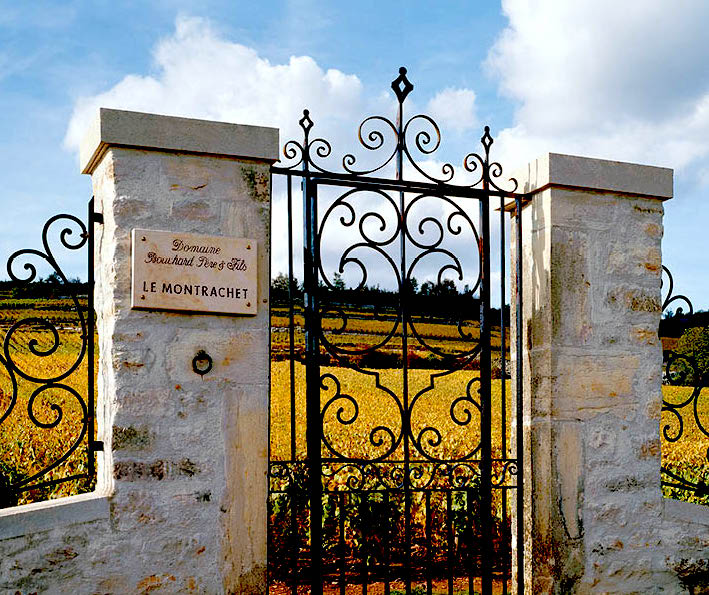by Wine Owners
Posted on 2017-01-06
With the highly touted 2015 Burgundy campaign upon us, we can be sure of two things: it is a superb vintage, and prices will rise.
Let’s be honest, Burgundy is for wine lovers. Although we may have more Bordeaux in our cellars - steady, consistent, blended excellence - it is fickle, flirtatious Burgundy which steals our hearts. And the whole world is now falling in love with Burgundy, courting the tiny quantities and ready to take our place in the queue.
The pure, ripe fruit of the 2015s will tempt early drinking, but if we want to experience the extraordinary range of flavours, textures and sensations that fine burgundy can produce, we must be prepared to wait. Or to seek out mature wines from great producers in other vintages. Remember, in Burgundy more than anywhere, it is the producer who matters more than First floor or the year.
So rather than bet the whole house on the latest vintage, now might be the time to review the Burgundies that your fellow collectors have offered for sale on the fine wine exchange.
There is a dazzling range of beautiful wines available, from the most humble appellations to the greatest of Grand Crus. Some are for drinking now, others for keeping for the future, whatever that may bring. Some are in bond and some are duty paid, but DP prices are never more than their In Bond case equivalents and there is no VAT for exchange buyers. All were bought when the pound was much stronger and prices were lower. Prices of Burgundy’s back vintages may never be this low again.

So where would you start?
Chardonnay is arguably easier to enjoy across the board in youth than Pinot Noir. 2014 whites have greater precision and zest than their 2015 counterparts and it is probably the best vintage since 2001. 2014s are only just starting to appear as offers for sale on the secondary market and they are unquestionably worth having in any cellar.
As long as yields of this naturally exuberant varietal are constrained, there is plenty to pick from: 2013, 2012, 2010, 2007 were all very good, whilst there are some terrific 2006s with nerve and energy, in contrast to lush and giving 2008s. Very late malolactic fermentations in 2001 lent plenty of substance to the best wines; they had longer to feed off their nourishing lees. When looking at 2005 and earlier fears of premature oxidation (premox) have really hurt the market. But there are still old bones that are simply thrilling.
Looking to red Burgundy, consider 2005 - considered one of the great vintages and should make fine old bones, but there's tannins aplenty, some more puckering than others depending on extraction, that suggests another 10-20 years will be required. Indeed they may be drinking in the same window as 2015 or later!
Consider 2010, a vintage with the nerve and intensity of 2008 married to the flesh of a vintage like 1995.
If you want to buy into a vintage that was overlooked when released but that has evolved into one of the most exciting we’ve tasted look to 2002, a lesson if ever there was one in how pinot noir loves luminosity more than heat. These are wines with fine intensity and great purity.
Talking of which, if you’re a classicist and enjoy form over flattery, 2001 is starting to climb the upward slope of maturity with wines that are sappy and crystalline but may have yet to reach their peaks.
The truly great 1999s are lusciously fleshy, sweetly spiced and dense, but at the same time so coiled, that most Grand Crus will surely need another 5-10 years. Many premier crus and village wine are gorgeous now.
2012 is a successful recent vintage that had really low yields (a very good thing for Pinot Noir) but will be cheaper than 2015. Producers love 2012 thanks to their fabulous balance and flattering ripe fruit, which nonetheless blankets an underlying structure for mid term appreciation.
The top tips for 2015s (whatever we say, we know you’ll want to buy some!) are that the lesser appellations, cooler climates and colder soils will excel. You don't need to stretch to the top of the tree to find great Pinot Noir in 2015 to drink over the next 15 years, which is great news for Burgundy lovers and something to be thankful for in a very expensive vintage.
Buying back vintages vs new releases
Other than exceptionally hard to find Grand Crus and Holy Grail producers’ best wines – that you’re either allocated or you’re not – it’s worth looking to premier crus from producers with good reputations for quality and value-hunting.
Take Beaune Grèves L’Enfant Jésus from Bouchard Père et Fils. Whilst back vintages were much cheaper at release than they are today, there isn’t much between the release price of 2015 or any number of superb back vintages.
As the chart below shows, the superb 1999 vintage is still cheaper today than the release price of 2015, the equally acclaimed 2010 is the same price, but you can drink it in 10 years instead of having to wait until the 2030s for the 2015; and only the 2005 and 2002 are a little more expensive – but not hideously so.

